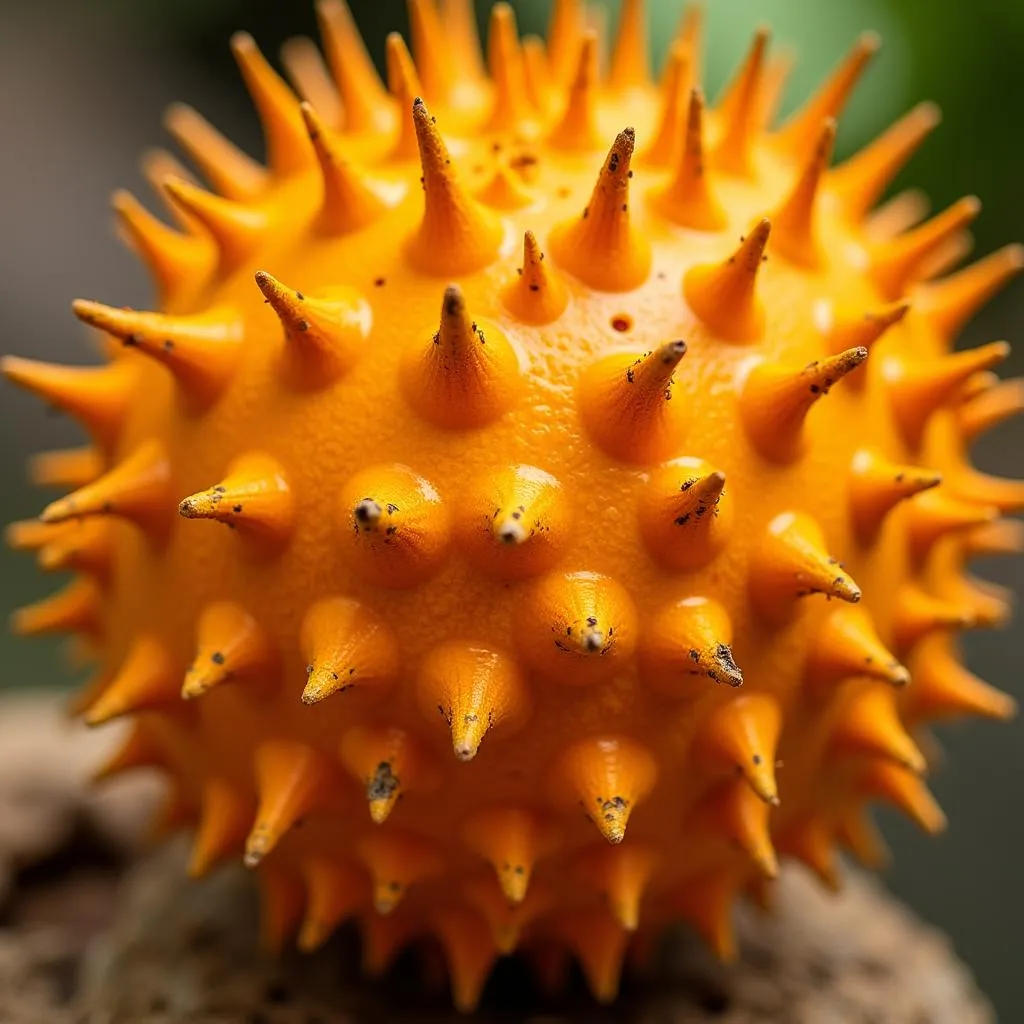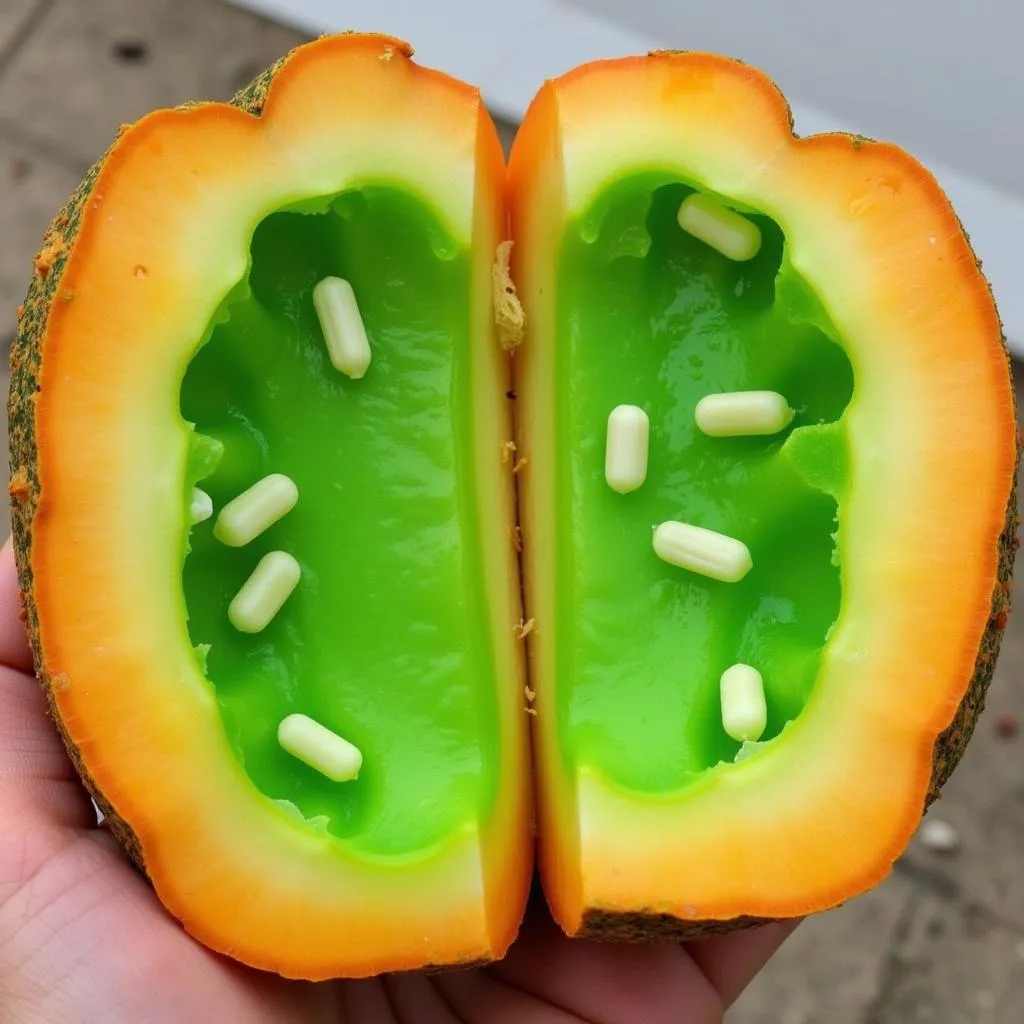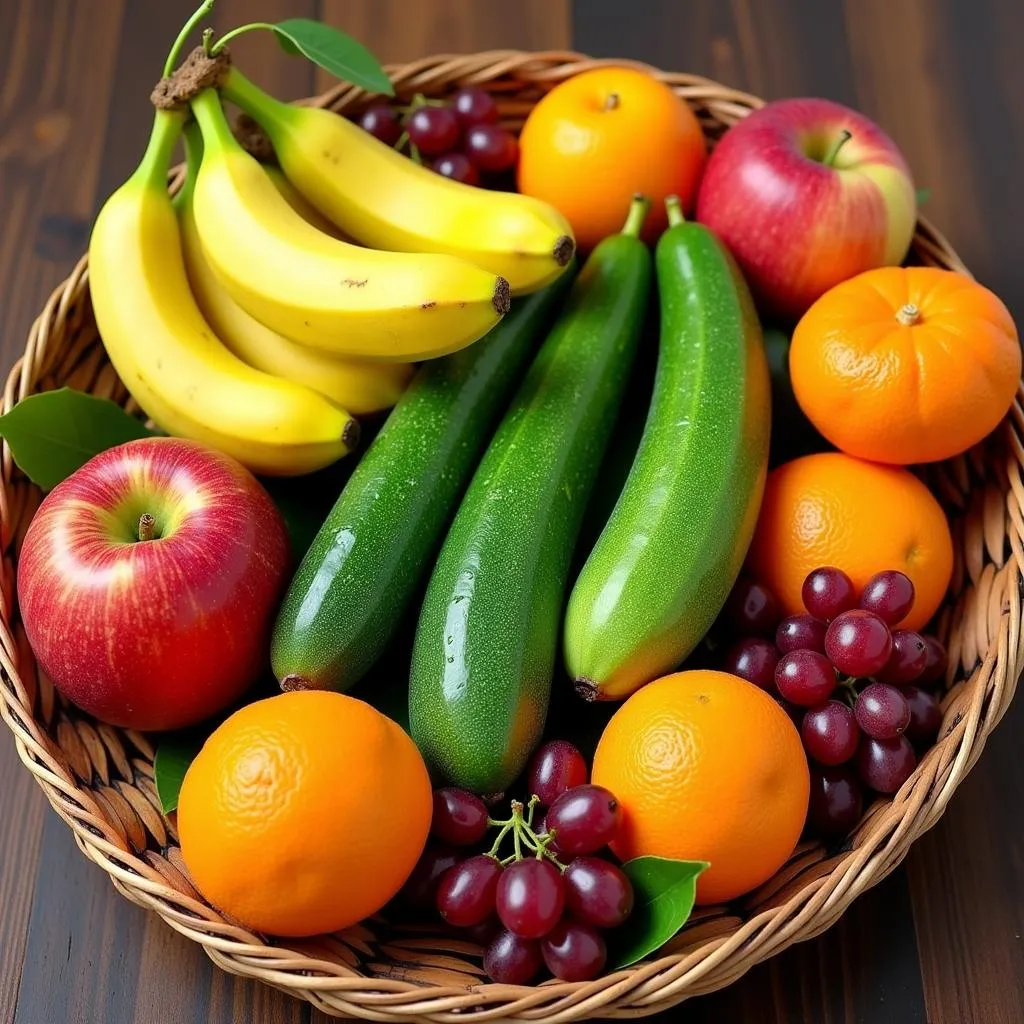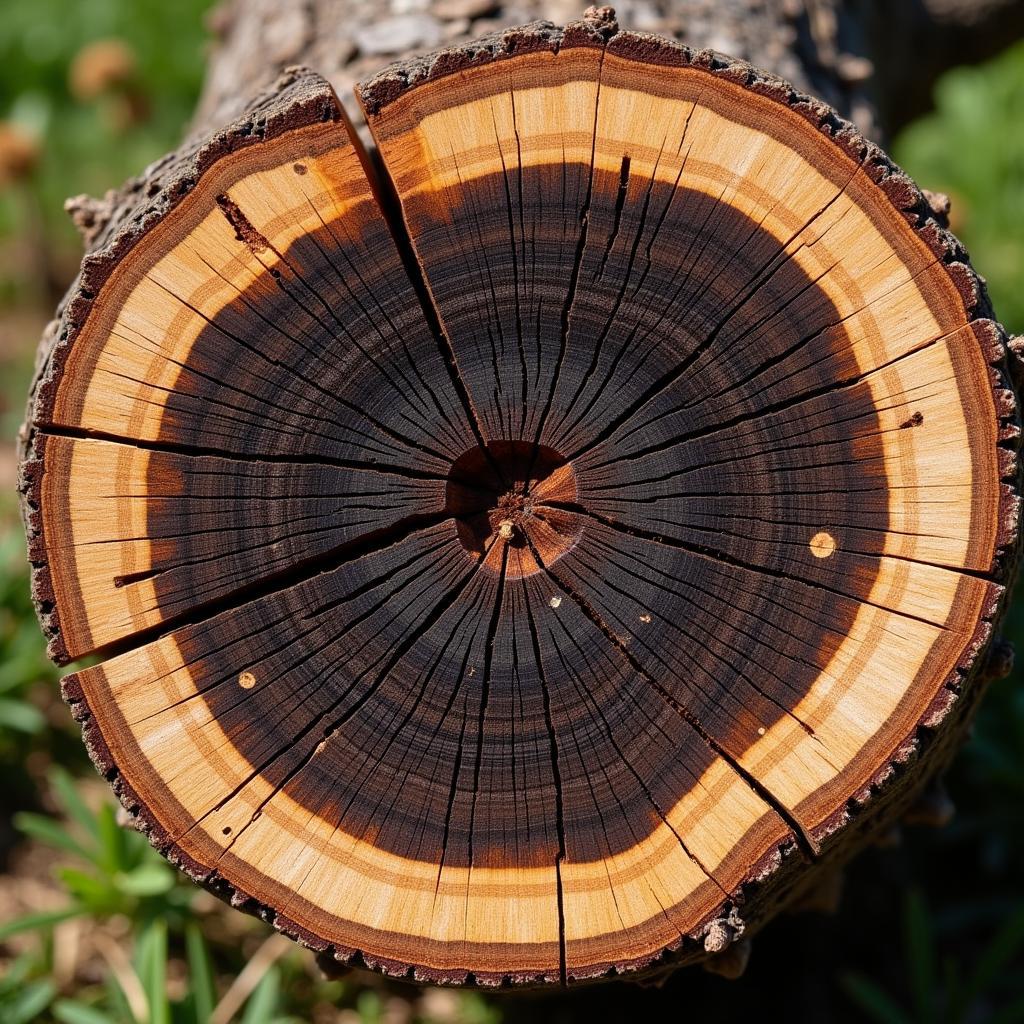African Horned Cucumber Nutrition: A Tiny Fruit with Big Benefits
The African horned cucumber, also known as kiwano or melano, is a peculiar-looking fruit with a spiky, orange rind and a jelly-like, green flesh. Originating from Southern Africa, this fruit, despite its name, is not actually a cucumber but a member of the cucurbit family, which includes melons and cucumbers. While its unusual appearance might spark curiosity, it’s the impressive African Horned Cucumber Nutrition profile that makes it a true gem.
 Close-up of an African horned cucumber
Close-up of an African horned cucumber
Unpacking the Nutritional Powerhouse
Don’t let its small size fool you; the African horned cucumber packs a powerful nutritional punch. This exotic fruit is low in calories and fat but bursting with essential vitamins, minerals, and antioxidants that contribute to overall well-being.
Here’s a closer look at the key nutrients found in this remarkable fruit:
- Vitamin C: A powerful antioxidant that supports immune function, collagen production, and skin health.
- Vitamin A: Crucial for maintaining good vision, healthy skin, and a strong immune system.
- Vitamin B6: Plays a vital role in brain development and function, red blood cell production, and energy metabolism.
- Iron: Essential for oxygen transport throughout the body and for maintaining healthy energy levels.
- Zinc: Supports immune function, wound healing, and cell growth and development.
- Potassium: An essential mineral that helps regulate blood pressure, muscle function, and fluid balance.
- Fiber: Promotes digestive health, aids in weight management, and helps regulate blood sugar levels.
 Sliced African horned cucumber with visible green flesh
Sliced African horned cucumber with visible green flesh
Health Benefits of the African Horned Cucumber
The unique combination of nutrients in the African horned cucumber translates to a range of impressive health benefits:
1. Boosting Immunity and Fighting Inflammation
Thanks to its high vitamin C content, the African horned cucumber helps strengthen the immune system, protecting the body against infections and illnesses. Additionally, its antioxidant properties combat free radicals, reducing inflammation and lowering the risk of chronic diseases.
2. Supporting Digestive Health
The fiber content in this fruit aids digestion by adding bulk to stool and promoting regular bowel movements, which helps prevent constipation and supports a healthy gut.
3. Promoting Hydration and Electrolyte Balance
The African horned cucumber boasts high water content and essential electrolytes like potassium, making it an excellent choice for staying hydrated, especially in warmer climates. This is particularly beneficial for athletes or individuals with active lifestyles.
4. Contributing to Heart Health
The potassium found in the African horned cucumber helps regulate blood pressure, while its fiber content helps lower cholesterol levels, both of which are crucial for maintaining a healthy heart and reducing the risk of cardiovascular diseases.
“The African horned cucumber is a prime example of how nature provides us with powerful, nutrient-dense foods that can significantly benefit our health,” says Dr. Abena Osei, a renowned nutritionist specializing in indigenous African foods. “Incorporating this unique fruit into your diet can be a delicious and easy way to enhance your overall well-being.”
 African horned cucumber placed in a basket with various fruits
African horned cucumber placed in a basket with various fruits
Conclusion
From its intriguing appearance to its impressive nutritional profile and health benefits, the African horned cucumber is a true testament to the diversity and richness of African cuisine. This small but mighty fruit offers a refreshing taste and a wealth of nutrients that can contribute to a healthy and balanced diet. Whether eaten fresh, juiced, or incorporated into salads and smoothies, the African horned cucumber is a versatile and delicious way to boost your nutritional intake and enjoy the unique flavors of Africa.
FAQs about African Horned Cucumber
-
What does African horned cucumber taste like?
The flavor of the African horned cucumber is often described as a refreshing blend of cucumber, kiwi, and banana. -
How do you eat an African horned cucumber?
You can eat it raw by scooping out the flesh, add it to salads and smoothies, or even use it to make jams and jellies. -
Where can I buy African horned cucumber?
African horned cucumbers can be found in some specialty grocery stores, farmers’ markets, or online retailers, especially during their peak season. -
Are African horned cucumber seeds edible?
Yes, the seeds are edible and contain beneficial nutrients. -
How do you store an African horned cucumber?
Store them at room temperature for ripening, then transfer them to the refrigerator for longer shelf life.
Need More Information?
For further inquiries or assistance, please don’t hesitate to contact us:
Phone: +255768904061
Email: kaka.mag@gmail.com
Address: Mbarali DC Mawindi, Kangaga, Tanzania.
Our dedicated customer care team is available 24/7 to assist you.

